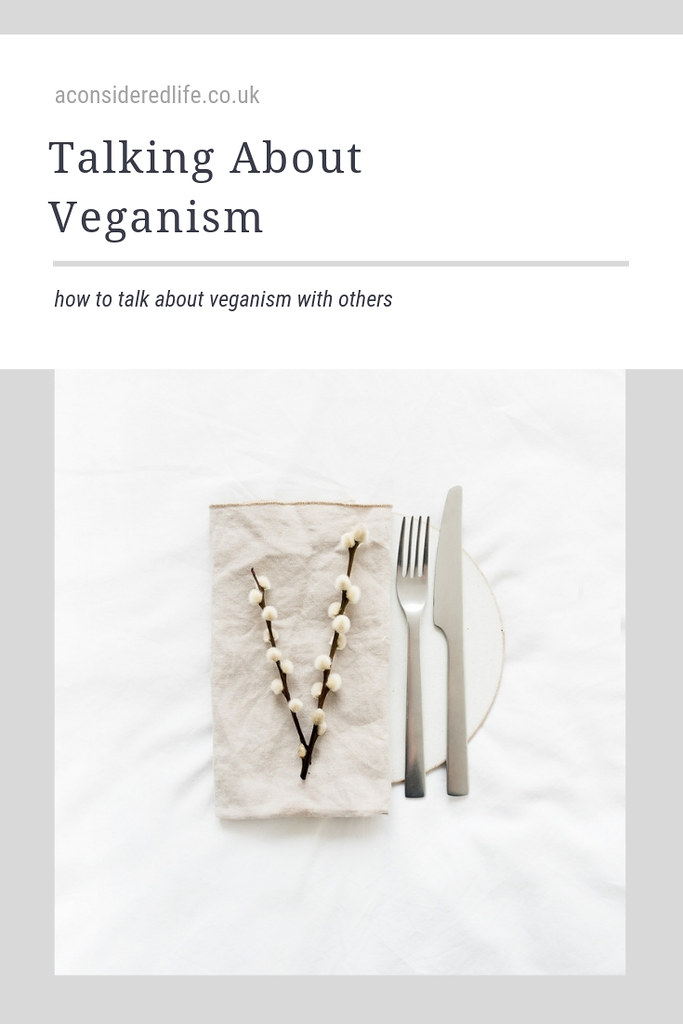
As you transition into veganism you'll quickly discover people have a lot of questions to ask. It might take your family members, friends, and colleagues by surprise. People who know you as a meat-eater might feel this change has come out of left field. Their feelings might range from being curious and interested to challenged and angry.
The mere mention of veganism can instantly cause some people to become defensive and even aggressive. You do not have to put up with someone being rude or aggressive towards you - that works both ways. If you find yourself in a situation where you are being made to feel uncomfortable (in a threatening way), you’re absolutely entitled to tell them to stop talking to you.
You might not always be dealing with people who hate vegans or veganism but the chances are you will encounter people who actively dislike it and want to argue about it with you. You might be surprised to find that some of your close friends and family members feel upset about your decision to adopt a vegan lifestyle and express offence at your choice.
Discussing veganism is important. People are curious, they have questions, and they have their reasons for eating animals. Opening up the discussion can be difficult and, at times, heated and that’s OK. These are tough conversations. Most people have never questioned whether eating or using animals is wrong or right, or that it's even a choice. Knowing how to handle these situations is really important for having conversations that leave both sides feeling uplifted. It's not about "converting people", it's about having engaged, informative, and, above all, respectful conversations with each other.

Why Veganism Makes People Angry
People get defensive and angry about things they do not understand or that challenge their deep-rooted beliefs. Feeling ignorant about any subject can lead to embarrassment (if you've ever asked an obvious question and been mocked, you'll know the feeling), this can provoke a reaction of anger or rage. It’s a reaction to an opinion that differs from the dominant social norm. Nobody likes to feel stupid, uneducated, or misinformed.
Having discussions about veganism challenges the dominant belief system that eating animals is normal, natural, and necessary. Growing up nobody asks us whether we want to eat animals, what we feel about it, or whether we believe it's OK. We're actually encouraged not to think about eating animals so when we're asked to it can be a jarring and upsetting experience.
I would like to encourage vegans and non-vegans alike to read Beyond Beliefs by Melanie Joy, a crucial text for improving communication and understanding between vegans, vegetarians, and meat eaters.

How To Talk About Veganism
Some people will try to make tired, unoriginal jokes at your expense (“Mmm, BACON!”) or attempt to derail the conversation with silly anecdotes or unlikely situations ("if you were on a desert island would you eat an animal?") Others will be outright aggressive and abusive or unwilling to listen. There might be some who try to drown out your voice by talking over you and there will be many others who just want to ask questions and have a conversation with you. It can be intimidating and challenging to discuss veganism with others, even those who are open to conversing with you. Many people will have preconceived ideas about veganism or will be wary of getting into conversations that might make them feel uncomfortable or misinformed. This is how to have more productive conversations about veganism.
The most important thing is: respect. Be mindful of the words you use to avoid implying judgment or challenging their feelings. Words such as "right/wrong" and "better/worse" can imply superiority and making someone feel stupid for their beliefs or opinions won't progress the conversation.
Be prepared; know the facts and the sources. Many people will recite "facts" they have heard about eating animals and, when faced with opposing information, may try to argue against it. Knowing sources and being able to recite names and figures is important.
Ask questions and listen to the answers; don't interrupt. It can be tempting to jump in when you hear misinformation being cited or common arguments being used for the justification of eating meat. Many vegans used to eat meat and used many of the same justifications for why we did it, it's important to remember that when having the same conversation with other people.
Be calm and confident with your responses. Don't take it personally if someone is critical of your lifestyle. People often have a lot of questions about veganism and may express disapproving comments - it's not personal, and remember you're doing the same thing to them: questioning their lifestyle.
Develop a thick skin and let obnoxious comments, offensive words, or jokes bounce right off you. Reacting to people whose only intention is to rile you will only feed into their superiority complex. People who attempt to upset or personally insult you are just looking to derail the conversation or provoke a reaction a reaction. Don't rise to it. Stay calm and keep the conversation on topic, or just walk away.
Be aware that talking about certain issues will always illicit a defensive response from some people. Even if you use a softly-softly approach, refrain from using evocative words and avoid confrontation. The mere discussion of eating animals will be uncomfortable and even offensive to some people. They might accuse you of being aggressive or pushy even when you're being polite. It's because they feel uncomfortable and threatened by opinions that oppose what they have always believed to be true.
Know that some people simply do not want to listen and will continue to shout you down or drown you out with senseless words and jokes. Unfortunately, there are many who are not interested in listening or learning. That's their prerogative and it's important to know when to walk away from these encounters.
